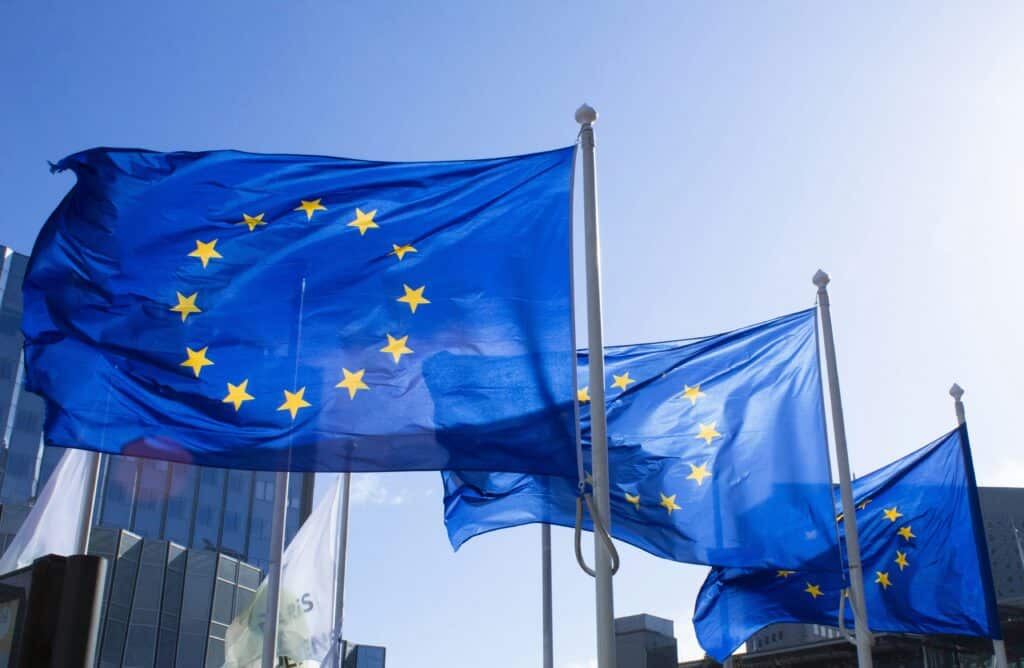FSR Topic of the Month
Digitalisation: Beyond the Buzzword
by Nicolò Rossetto (FSR)
The digital frontier: between communities and resorts
The speed and spread of digitalisation, as well as its transformative potential, are increasing at a rate that is nearly incalculable. Its far-reaching implications are not yet entirely understood, nor have they fully materialised. Countless new technologies and business models are currently being tested in what we can rightly define as the digital frontier.
According to the research conducted by Professor Jean-Michel Glachant and presented in a policy brief issued recently by the Florence School of Regulation, the digital frontier is made of two main building blocks:
- Digital communities with disintermediated peer-to-peer (P2P) transactions, and
- Virtual resorts for artificial intelligence (AI).
This blog post will first present them and later turn to the consequences they may have on the electricity sector.
Markets and hierarchies, in the form of both firms and public authorities, do not exhaust all the possible ways in which economic activities and resources are organised and managed. Institutional economists like the Nobel Prize winner Elinor Ostrom highlighted the role played by communities in the management of common resources and the possibility for the members of such communities to eliminate intermediaries and third parties from the related economic transactions. New digital technologies like blockchain offer the opportunity to generate an essential ingredient for the establishment of any community: trust among its members. Indeed, at the heart of blockchain’s technology, there is the creation of a distributed ledger that can validate and keep records of all the transactions among the participants to the same blockchain network. A central clearinghouse is not necessary to ensure the integrity of the ledger. On the contrary, every member of the blockchain network can verify if a specific transaction occurred or not and contribute to the functioning of the ledger.
Once fully developed, blockchain networks pledge to generate the trust necessary to support economic relations between individuals that are no longer obliged to rely on intermediaries like banks, credit card companies or registries managed by governments.[1] However, the jury is still out, and there is growing scepticism about the possibility to apply blockchains everywhere, at least in the “public” form envisaged in 2008 by Satoshi Nakatomo, the “father” of blockchain and bitcoin. The time and energy required to validate transactions or manage errors among a large number of parties may limit the scope of this technology and explain why several companies and organisations are testing “private” blockchains.[2] By performing trades within a community of trusted peers, with an implicit or explicit set of rules and common governance, the complexity of blockchain can be reduced and its operation – in particular, the validation process – simplified.
Although there is currently a lot of interest around blockchain, the communities enabled by digitalisation are by no means confined to public or private blockchain networks. Thanks to digital technologies, other types of communities can be built and act as larger and less strictly organised entities with multiple purposes. Energy communities and smart cities are just an example of them.
The digital frontier implies, at least under some circumstances, not just the end of the traditional intermediaries but also the end for the active role of customers. This is the consequence of the establishment of virtual resorts for AI, i.e. a space where a human being surrenders its autonomy to the AI and the algorithms behind it. Within the boundaries of such type of resorts, the human, be it a producer or a consumer, can at most set some parameters for the AI. Then, it is the AI, not the human, to take the decisions and manage the assets that fall within the resort’ boundaries, according to the rules and procedures defined by the AI developer. Take Disneyland for example; potential customers can decide whether or not to enter, but once they are inside, they must follow the rules of the resort, which they did not contribute to defining.[3] Besides that, when “entering” a virtual resort for AI, customers not only accept to abide by the rules, but also accept to be replaced in many decisions and actions by the machines managed by the AI: their active role, in a sense, ceases.
Virtual resorts for AI, a concept not yet fully developed or widely used by academics or practitioners, can take on different forms. They can, for instance, be “single purpose”, as the one managing a driverless car, or they can be “multi-purpose”, like those in charge of the optimisation of a set of interactive devices. The development of the Internet of Things (IoT) and virtual personal assistants like Alexa (Amazon) or Siri (Apple) are key. IoT allows for the expansion of boundaries and the purposes of a virtual resort, while virtual personal assistant show how to transform any human dialogue or interaction with various devices into an AI automated, smart and learning decision-making process.
Implications for the electricity sector
By creating the trust necessary for transactions to take place, public blockchain networks or private solutions developed within a community of customers and/or companies promise to end the need for intermediaries and enable truly decentralised and more efficient trade of electricity and other products like green energy certificates.[4]
In general, people may perceive renewable energy resources, electricity storage assets, electric vehicles, distribution grids and the like as scarce local resources in need of a community approach and community governance. Digital technologies can support this and allow communities to manage the growing amount of assets located behind the meter, consistently with the needs and goals that those communities define for themselves.[5] Collective self-consumption, micro-grids, smart neighbourhoods and cities are among the many variants in which this can materialise. Given the general distrust towards traditional utilities and the broad appeal of bottom-up initiatives, we can expect that the impact of these communities on the electricity sector’s current organisation will be far from trivial (especially if supported by the legislator).
In the near future, disruption could also come from the flourishing of virtual resorts for AI, just behind the meter of the public utility. Consider, for instance, EVs and the fleets of self-driving cars that companies, not necessarily belonging to the electricity industry, are deploying in major cities all around the world. Each of those vehicles is a battery on wheels and will soon collectively represent a significant storage capacity for the entire electricity system. Sophisticated software will manage the batteries and interactions with the electricity grid, charging or discharging the vehicle depending on the price of electricity, the conditions of the system, and the status of the battery itself. The input from human users will be reduced to the minimum, while vehicle fleets will be professionally managed with algorithms as an integrated business, whose goal is not just offering a mobility service, but also to sell energy and/or power to the electricity grid.
Similar developments will take place for smart buildings and distributed generation. People living in a smart building or owning a solar rooftop will not be required to do much, as AI will take control of the various interconnected energy appliances and generation units, with the goal of optimising the use of local resources or minimising the overall cost of the energy service. Net-zero energy buildings mandatory in jurisdictions like California or the EU from the next decade will probably have to work in this way. As in the case of EVs, companies other than the traditional energy suppliers may and will act, creating virtual resorts that encompass large residential areas. Already today, construction companies and battery manufacturers are cooperating to develop new neighbourhoods and gated residential areas able to work as virtual power plants. Given the amount of power that thousands of smart buildings can inject or withdraw from the public grid, the companies building and controlling these new virtual resorts will have the opportunity to play a major role in the electricity sector of tomorrow.
Author’s note: this blog post relies heavily on a policy brief issued recently by the Florence School of Regulation. You can access it here.
[1] Tapscott D. and A. Tapscott (2016), Blockchain Revolution: How the Technology Behind Bitcoin is Changing Money, Business and the World, Penguin.
[2] Arrunada B. (2018), Blockchain’s Struggle to Deliver Impersonal Exchange, Minnesota Journal of Law, Science and Technology, vol. 19, no. 1, pp. 55-105.
[3] This is the main difference between a community and a resort: the members of a community define the rules governing the community itself more or less on an equal basis (they are peers); on the contrary, in a resort visitors do not contribute to the creation of the rules that are enforced upon them by the resort’s manager.
[4] An overview of the early application cases of blockchain technology to the electricity sector can be found in Livingston D. et al. (2018), Applying Blockchain Technology to Electric Power Systems, Discussion Paper, Council on Foreign Relations.
[5] Boorsma B. (2017), A New Digital Deal. Beyond Smart Cities. How to Best Leverage Digitalization for the Benefit of our Communities, Boekscout BV.






